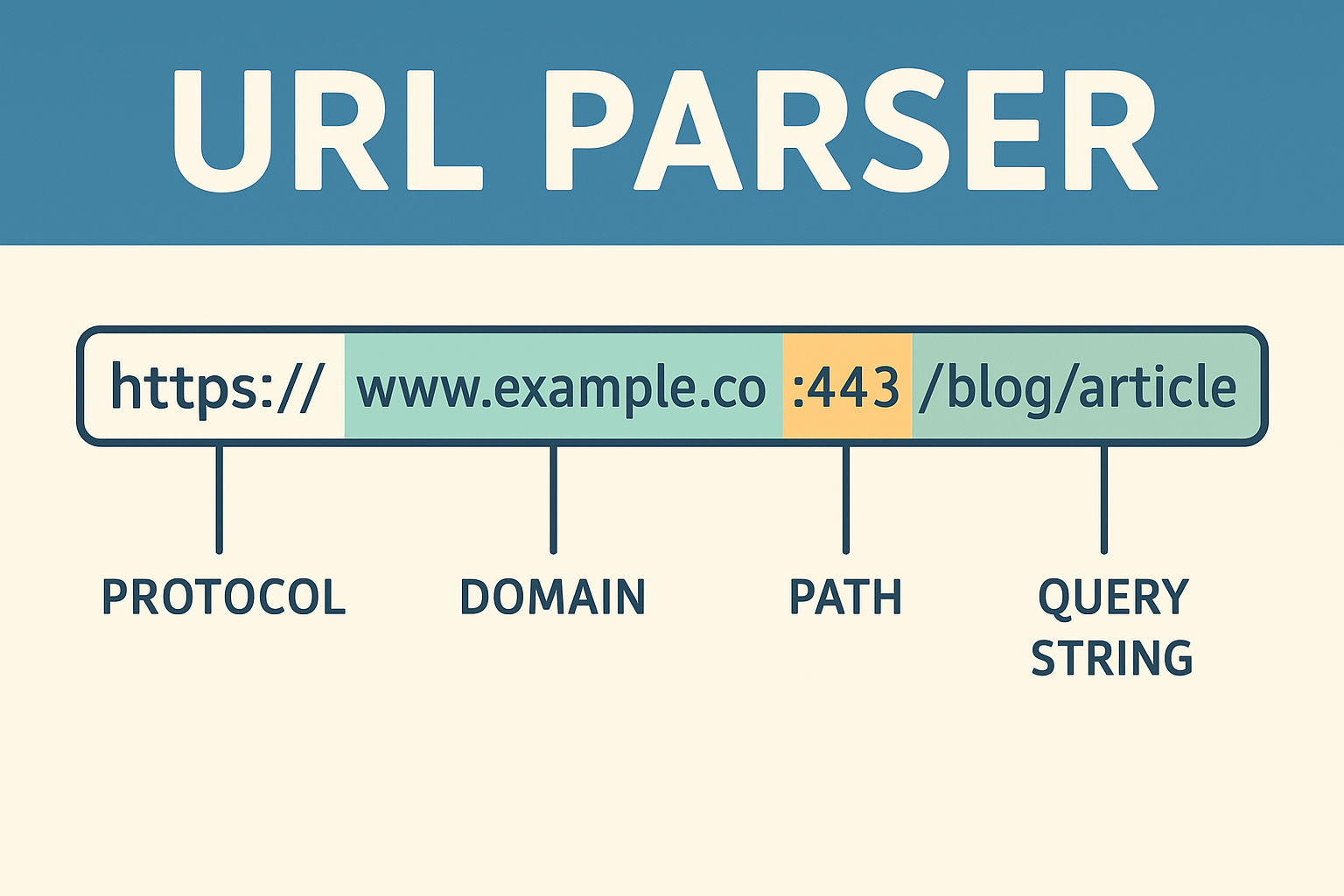
URL parser
Created on 5 October, 2025 • Developer Tools • 76 views • 2 minutes read
"Learn everything about URL parser tools, their uses in web development, SEO, and security. Discover how a URL parser breaks down links into protocol, domain, path, and query parameters for better analysis and optimization."
URL Parser: A Complete GuideWhat is a URL Parser?
A URL parser is a tool or function that breaks down a given URL into its different components. URLs (Uniform Resource Locators) are the addresses used to access websites, files, and other resources on the internet. A typical URL consists of several parts such as protocol, domain name, port, path, query string, and fragment. A URL parser helps separate and analyze these elements so developers, SEO experts, and users can better understand and work with them.
For example, in the URL:
https://www.example.com:443/blog/article?id=123#comments
A URL parser would divide it as:
Protocol: https
Domain: www.example.com
Port: 443
Path: /blog/article
Query string: ?id=123
Fragment: #comments
Why Use a URL Parser?
Parsing URLs is an essential step for both technical and SEO purposes. Here are some common uses:
1. Web Development
Developers frequently need to extract specific parts of a URL to handle routing, redirects, or dynamic content. A parser saves time by automatically separating each part of the URL.
2. SEO Analysis
SEO specialists use URL parsers to analyze site structure, identify duplicate parameters, or detect issues with query strings. Clean and optimized URLs are critical for better search engine rankings.
3. Security and Validation
A URL parser can detect malformed or malicious URLs. By analyzing components, systems can prevent phishing links or unsafe redirects.
4. Data Extraction
In digital marketing and analytics, URL parsers help extract UTM parameters, referral sources, and campaign data for performance tracking.
Benefits of Using a URL Parser
Easy Debugging
When troubleshooting broken links, a parser makes it simple to find which part of a URL is causing issues.
Improved SEO
By examining query parameters and structures, SEO experts can optimize URLs for better readability and indexing.
Automation in Applications
Parsers allow automated scripts and programs to handle large volumes of URLs without manual analysis.
Compatibility
Modern URL parsers are available in many programming languages like JavaScript, Python, and PHP, making them versatile for all web projects.
Key Features of a Good URL Parser
Accuracy: Correctly separates every component.
Flexibility: Handles complex URLs with multiple query strings.
Speed: Efficiently processes large batches of URLs.
Security: Identifies unsafe or malformed URLs.
Conclusion
A URL parser is a powerful tool for developers, SEO professionals, and digital marketers. By breaking URLs into meaningful components, it simplifies web development, improves SEO performance, enhances security, and supports data-driven decision-making. Whether you’re analyzing links for optimization or coding a web application, a reliable URL parser ensures efficiency and accuracy.
Popular posts
-
Barcode readerMisc Tools • 160 views
-
Color pickerMisc Tools • 122 views
-
Exif readerMisc Tools • 117 views
-
SHA-256 generatorGenerator tools • 93 views
-
Ip LookupChecker Tools • 90 views